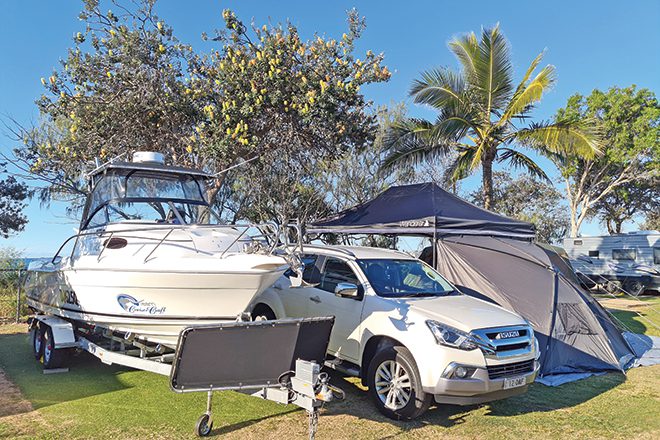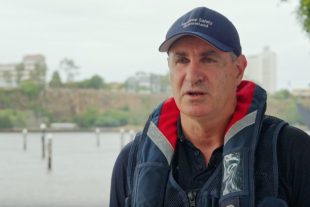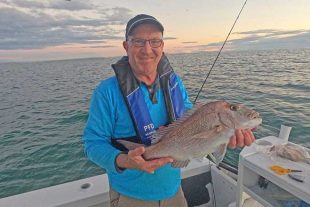HOLIDAY time – beauty!
Pack the tent and other camping gear into the boat, load up the car and head for that idyllic beachside camping ground where you’ve booked one of the best sites.
Sounds like the perfect plan, and it is, provided you first make a couple of very important checks.
Here’s your first one – is your boat going to be covered by insurance where you’re headed?
“Um, but I paid the premium only two months ago, of course we’re covered.”
Are you though?
Some insurance policies carry strict limitations on the geographic coverage they provide and that can be in a number of different forms.
No doubt there will be a maximum distance offshore that you are permitted to travel, according to the Product Disclosure Statement attached to your boat insurance policy.
That might not be too much of a problem if you have no intention of heading out wide to faraway reefs, but it’s still worth checking. Always know that applicable distance.
For Nautilus Marine, in most cases, it is a very generous 250NM offshore, but this can change in instances such as insurance for offshore racing vessels.
But the second key point to check is not always so well known.
Some policies limit how far north you may travel and here’s a surprise for many – some of those geographic limitations mean you will only be covered as far north as Mooloolaba.
So, if you depart the family home in Brisbane headed for a fabulous destination such as the town of Seventeen Seventy, Tannum Sands or Gladstone, you could be at risk.
Why are these geographic limitations in place? Well, in simple terms and among other things, the further north you travel, the more likely you are to be exposed to cyclonic conditions.
The key point here is not to debate whether you are going in a season that is potentially cyclonic, but rather to establish for certain whether your destination and areas thereabouts, which you are likely to visit, are included in your geographic range of coverage.
This consideration is also vitally important when you are touring interstate or perhaps even moving residence permanently.
If moving permanently, not only does the geographic limit become a consideration but also you’ll need to make amendments to your policy by informing your marine insurer so that the new address can be noted on your policy.
How and where your boat will be kept?
There are quite a few details that might need amending so as always, your best advice is to contact your insurer and talk frankly about your plans.
In many cases, it might only mean an administrative change here and there, but in others the current policy may be unworkable and will need to be replaced.
And when you are going on holidays to a new destination, check with the local harbour master, water police, the local air sea and voluntary rescue services and other credentialled organisations to see if there are any local knowledge issues that might catch you out.
For example, there might be a nominated ‘go slow’ area defined in the river you might be using or a landing barge and equipment undertaking works near the mouth of the river.
Or there could be a sand dredge in operation, meaning special speed limits are in place or there may be a formal requirement relating to which side you must track past the working vessel.
Failing to adhere to such requirements could jeopardise the insurance cover you are provided with under your policy.
As an overview, these requirements are generally not onerous – they simply relate to you being a thoughtful and safety focussed skipper.
What is and what may not be covered will always be decided in accord with the terms of insurance as defined in your insurance policy’s Product Disclosure Statement.
Similarly, any special conditions and excesses should always be explained clearly in your insurance policy’s PDS.
If you need further information, you can contact Nautilus Marine Insurance on 1300 780 533 for any boat insurance requirements. https://www.nautilusinsurance.com.au/
 Bush ‘n Beach Fishing Magazine Location reports & tips for fishing, boating, camping, kayaking, 4WDing in Queensland and Northern NSW
Bush ‘n Beach Fishing Magazine Location reports & tips for fishing, boating, camping, kayaking, 4WDing in Queensland and Northern NSW









